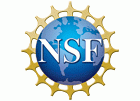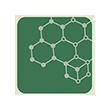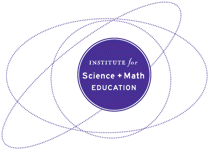Why you should stop pre-teaching science vocabulary and focus on students developing conceptual meaning first

Why It Matters To You
- Teachers should elicit, value, and leverage students’ ways of communicating when observing and making sense of phenomena, rather than front-loading scientific vocabulary.
- District Staff & PD Providers should help teachers see language as a cognitive tool that students develop over time as they engage in meaningful sensemaking.
- School Leaders should support the creation of truly multilingual learning environments, where students’ home and heritage languages are valued and used for learning.
What is the Issue?
Many science educators focus on pre-teaching technical vocabulary at the start of the unit to help students become comfortable with science discourse. This approach is especially common with students from historically marginalized communities, in particular emerging multilingual students. However, it is much more productive to support learners as they organically develop language (terms, phrases) that interprets and explains phenomena, rather than asking them to merely acquire terms. Additionally, it is key for equity that educators identify, value, and leverage students’ home languages.
Authors:
BY ENRIQUE SUÁREZ, PHILIP BELL, AMBER MCCULLOCH & MARY STARR
Reflection Questions
- What strategies could you use to encourage all students, including emerging multilingual students, to express themselves in multiple ways?
- Instructional materials are not always designed to support students to use multiple languages or forms of communicating. What additions or modifications could you make to your materials to make them more linguistically equitable (e.g., to rubrics)?
Things to Consider
- Science is a broad endeavor that relies on complex strategies for communicating and describing how and why phenomena happen. This requires that scientists and engineers develop their own ways of communicating precisely within their communities, often relying on technical registers (i.e., a variety of language with specific vocabulary).
- However, science learning environments that emphasize academic language and school-based, English-only ways of speaking can disenfranchise emergent multilingual students and/or students from non-dominant communities by not incorporating their ways of talking and sensemaking. Such an approach can lead a student to dis-identify from the scientific enterprise in an unnecessary way.
- All learners come to classrooms with resources for communicating that are productive for learning and participating. Most learners can draw upon multiple ways of communicating (e.g., different languages, registers, gestures) as they navigate different learning situations.
- Educators should build on these resources. Learning environments that invite a wider range of ways of talking create more opportunities for students to reason and communicate. They are more inclusive, rich, and productive. Limiting which communication resources are allowed in the classroom (e.g., languages, registers) can limit students’ participation and learning, especially those from non-dominant communities.
- School accountability systems and policies often expect students to learn and use academic language. In these settings, educators should provide students with meaningful access to academic language and support them as they develop this fluency, and support their Critical Language Awareness.
- Sometimes, learners can hide their lack of conceptual understanding behind technical vocabulary. Educators should help their students be explicit about what they understand (and what they do not) by describing their understanding in their own words without making students worry about repercussions.
Attending to Equity
- Multilingual students’ learning and participation increase when they have access to a broader repertoire of ways to make sense of and talk about the natural phenomena they investigate and observe. It is their right to express themselves using all of their language resources.
- Multilingual students are not just developing scientific fluency. They are also able to develop their fluency in the multiple languages they speak when they leverage them for meaningful activities, like learning science. This can help them identify with science and broaden participation.
Recommended Actions You Can Take
- Rather than starting with a list of scientific vocabulary to be learned, create a “word catcher” with your students, with all the terms they have used when thinking and talking about the phenomena over the course of an investigation. Embed these words into several forms of communication.
- Engage students in making sense of phenomena using home and heritage languages as well as English. Group students that share similar linguistic resources, or at least allow for home language communication to happen.
- Address “language ideologies” that explicitly or implicitly signal that some languages are more valuable than others, especially when engaging in science and engineering.
ALSO SEE STEM TEACHING TOOLS
STEM Teaching Tools content copyright 2014-22 UW Institute for Science + Math Education. All rights reserved.
This site is primarily funded by the National Science Foundation (NSF) through Award #1920249 (previously through Awards #1238253 and #1854059). Opinions expressed are not those of any funding agency.
Work is licensed under a Creative Commons Attribution-ShareAlike 4.0 Unported License. Others may adapt with attribution. Funded by the National Science Foundation (NSF). Opinions expressed are not those of any funding agency.


 Email Feedback
Email Feedback


